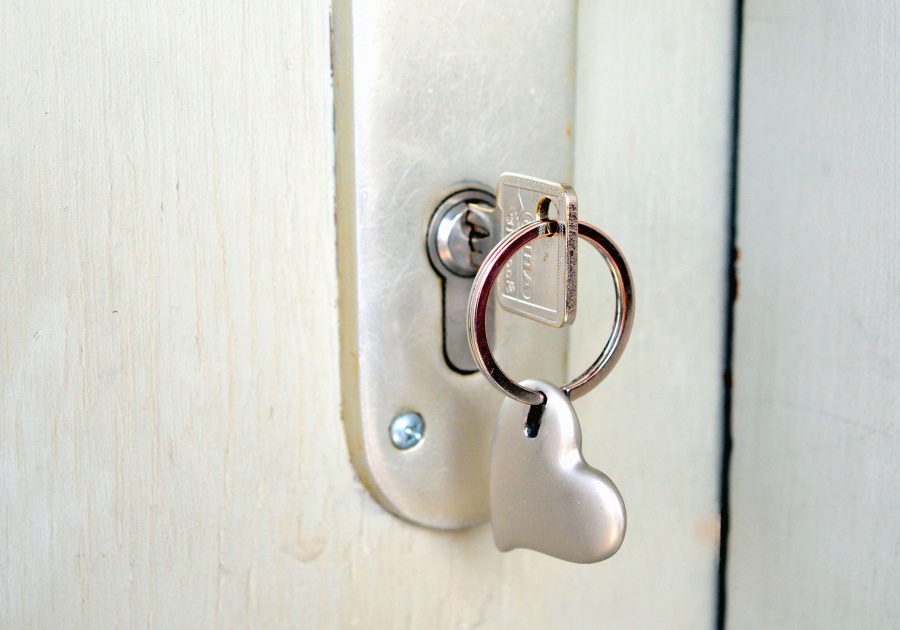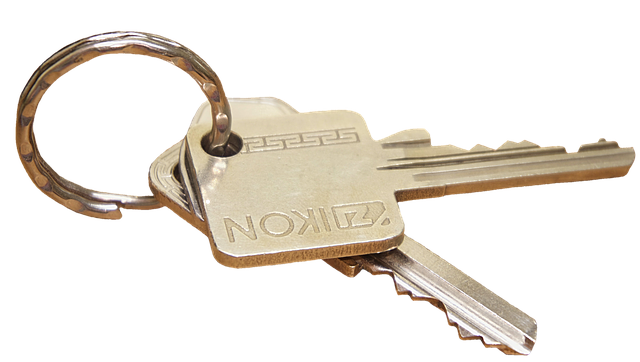
Since glass windows were first popularised centuries ago, they’ve been used in doors. Of all of the glass-incorporating designs, the French door has proven the most enduring sort – it consists of a pair of outward-opening doors, each of which contains one or more glass panels. The French door remains a popular choice for external doors opening out onto gardens, patios and balconies – as it offers an extra window, creating a sense of space within an interior and allowing the occupants of a home to see out into their gardens. What’s more, thanks to modern double-glazing technology, this sense of space needn’t mean that we compromise on our home’s thermal efficiency.
But French doors, for all of their strengths, are seen by many as a security risk. If you’re worried about how to secure your French patio doors against would-be intruders, then be sure to read on!
French doors are widely seen as less safe than their opaque counterparts, as the glass is a great deal easier to hurl a brick through than solid wood. But in truth, we might say the same of all of the windows on the ground floor – if a would-be burglar is willing (and able) to smash the glass, then they’ll simply do it to a nearby window instead of the door.
Security glazing is a sort of glass which cannot be levered or pried out of its housing, but which instead must be smashed apart. You might imagine that forcing a thief to smash through your door in order to gain access might be a bad thing, but this isn’t the case for a few reasons. Smashing a window takes time and creates noise, both of which will contribute to the likelihood of a thief being caught red-handed. It also heightens the risk of injury for the intruder, as they’ll have to avoid lacerating themselves as they reach in. Finally, smashing through glass is likely to leave forensic evidence on both the scene of the crime and the burglar – which will heighten the chance of a successful prosecution later on.
A far greater risk from opening your home up to the outside comes with visibility; if a burglar can easily see into your property, then they’ll be able to see items that they might want to steal. For this reason, it’s important to ensure that you haven’t left any valuables in plain sight – particularly if the contents of a room are visible from the street. Since the overwhelming majority of French doors open out onto a back-garden patio, this isn’t likely to be a problem – but it’s still worth shutting your curtains at night.

When you’re considering how you’d like your patio doors to be installed, you’ll need to decide whether you’d like them to open inwards or outwards. The latter option will provide you with more space in your interior, and so it’s the preferred one for owners of properties of all sizes. After all, who doesn’t want more room?
Outward-opening doors, however, do come with a security weakness – the hinges are exposed to the outside world, allowing any suitably skilled intruder to remove the pin and literally dismantle the door. We’ve two means of preventing this – we can either opt for an inward-opening door instead, or we can invest in heavier-duty secure hinges that are tamper-proof.
It’s possible to enhance the security of your French doors without directly modifying them. This is so with the help of a few extra devices.
Among the most popular of these is a door alarm, which can be obtained relatively inexpensively, and is designed to affix to a door and emit a loud beeping noise when it detects a suitable vibration – one which might indicate the door is being tampered with. If you’re shopping for one of these, be sure to opt for one that’s wireless, and comes with an adjustable sensitivity – the last thing you want is for the alarm to go off in the dead of night when a moth knocks against the glass.
Another popular solution is a security bar. This device offers a more brutish solution for inward-opening doors: it consists of a large metal pole which fits across the centre of the door, thus preventing it from opening inwards. A security bar might be seen by many as a step too far, as it impact the overall look of the door considerably. If you’re concerned about your French door and the security risk it poses, however, a security bar might be just the device required to put things right.
If you’re concerned about the security of your set of French doors, then you’ll be pleased to learn that there are myriad security options to help keep them safe. These options will be slightly different depending on whether you’ve decided on a uPVC door or a wooden one. Let’s take a look at them.
Wooden French doors can be sawn at, drilled into and sanded down; they’re thus a great deal more easy to modify. Consequently, equipping them with extra security devices is relatively straightforward.
A nightlatch (or, as it’s often referred to, a ‘Yale’ lock) is a sort of lock which acts as a normal lock, but which can be immobilised from the inside of the door with the help of a simple lever and a button. It offers an extra line of security that’ll allow you to make your door impassable at night – even to someone who’s got the key.
A mortice deadlock is designed to be set within the door itself, within a specially-made hole known as a mortice. They’re typically locked and unlocked with the help of a specially-made round key. They hold two distinct advantages over the external couterparts: firstly, they’re protected from sabotage by the surrounding door, and secondly, they’re difficult to spot, and so will allow you an additional layer of security without compromising on the look of the door – which, after all, is a significant part of the appeal of a set of French doors!
When it comes to uPVC doors, your options will be a great deal more restricted. uPVC doors cannot be easily modified after they’ve been installed, and so you’ll need to select one which already comes equipped with adequate security. This is because the material isn’t very strong, and so it cannot support steel screws. Instead, these screws must be mounted onto the interior of the door. Such modifications may work against the existing locking mechanism – and they’ll void the warranty, too. As such, they’re best avoided.
In most cases, this comes in the form of a trio of locks, which making entry difficult; two latches at the top and bottom of the door, and a deadlock in the centre. uPVC doors also tend to do a better job repelling unfavourable weather, which makes them a popular choice for the outside of a property.

As with any door, you’ll be limited not just by the design of the door itself, but the way in which it’s used. For example, if you intend to leave a spare key around on the exterior of your house, then you’ll be presenting would-be burglars with an easy means of entering the property – and what’s more, since they’ll leave no evidence of a break-in, the losses may not be covered by your insurer.
So, if you’re tempted to leave a spare key on the outside of your property, perhaps beneath a conveniently-placed plant pot, a garden waste bin, or a conspicuous garden ornament – then think again. The better option is to leave the spare with some trusted person – ideally a near-neighbour. That way, when you get locked out of the house, you’ll be able to get back in – but you’ll be able to do so without incurring unnecessary risk.
Conclusion
French doors endure a bad reputation when it comes to security. But nowadays, most of this reputation is unjustified – French doors have come a long way, and the seals used to hold the glass in place make them just as secure as their folding and sliding counterparts. If you’re in search of a door that’ll allowing a extra light into your interior, and that’ll increase the impression of space, but which, crucially, doesn’t compromise on security, then a set of French doors might be exactly what’s called for.
